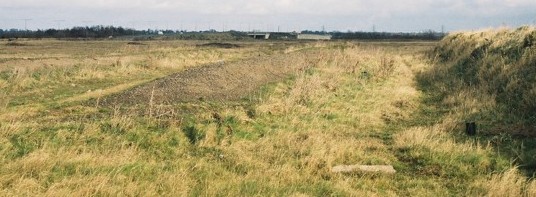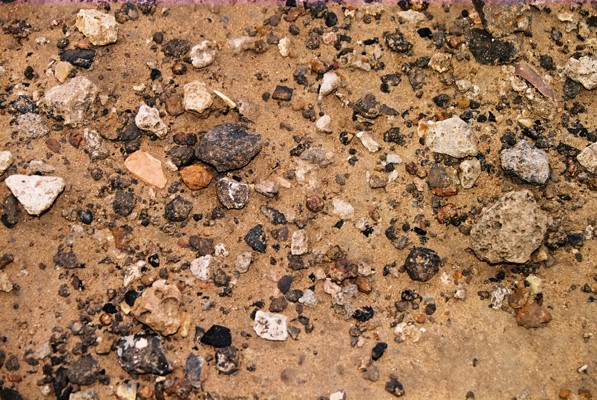- Home Page
- Composting
- Decomposition
Aims
Feedstock and Compost Mixes
Compost Production and Application - Land Restoration
- Quarry Sites
Urban Brownfield Sites
Mine Sites
Colliery Sites - Restoration results
- Quarry site - Blaenau Ffestiniog
Urban Brownfield site - Shotton
Mine site - Greece
Colliery site - Woolley Colliery - Dissemination and Publications
- Forthcoming Events
Previous Events
Open Days
TWIRLS Newsletters
Scientific Publications
Media Archive
Best Practice - Manuals and Tools - Information Services
- Best Practice - Manuals and Tools
- Our Staff

TWIRLS: Treating Waste for Restoring Land Sustainability
Restoration Activities - Urban Brownfield Sites
The TWIRLS project are carrying out on-site in-vessel aerobic composting and vegetation re-establishment trials on a 30 ha brownfield site on Deeside, Flintshire. The aim of the trials is to demonstrate that wastes can be composted in appropriate combinations to create soils suitable for addition to contaminated land both to aid bioremediation and the establishment of biodiverse mesotrophic (meadow) grassland.
You can read about our on-going co-composting, bioremediation and meadow grassland establishment trials in our Shotton site diary and we've added some stunning insect pictures from a photographic herbarium collection recently compiled during biodiversity surveys at Shotton.
This brownfield area is the site of a former steelworks and features soil contaminated with benzene, toluene, ethylbenzene and xylene (BTEX) which has been covered with a deep layer of estuarine sand dredgings. Contaminated soil brought to the surface to form a biopile can be seen in the middle of this photo and in detail, below; it contains much clinker and rubble and supports little vegetation. This soil will be bioremediated by co-composting it with organic materials then planting it with native tree species bearing berries to increase the biodiversity of the site.

photo: Julie Williamson

photo: Mark Nason

